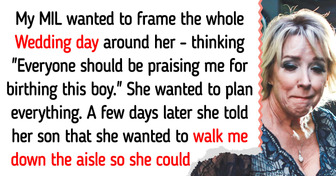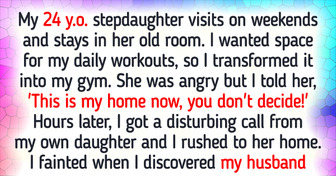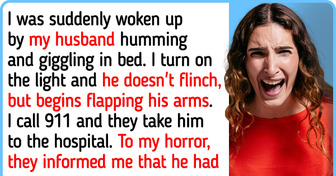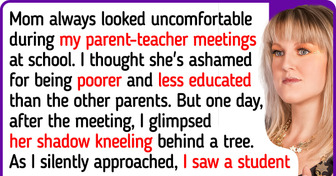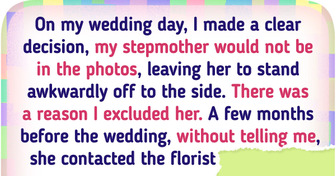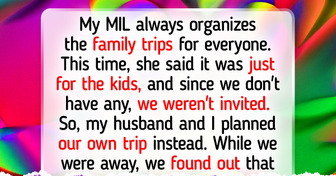8 People Whose Routine Taxi Rides Took an Unexpected Turn
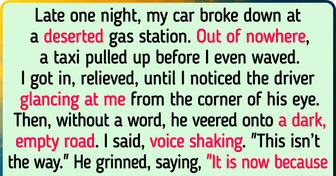
Maybe you have been dating for a few weeks, months, or even for a few years, but deciding the right time to get married can become a challenge. In fact, there isn’t one “ideal” time to say your vows, but each life period can bring advantages and disadvantages depending on your and your partner’s goals, personality, and experience.
We at Bright Side found out what psychologists have to say about the good and the bad of marrying earlier or later in life.
Waiting for one of you (or both) to finish college and start a career probably means years and years of separate lives. But going through career changes, family issues, and other problems together will give you a chance to learn more things about each other. Later it might become a memory you will cherish.
There is one report that says both women and men, when they are in their mid-twenties, have good odds of a successful marriage with a lot of happiness and passion. They have a higher chance to flourish compared to those who wait to get married in their thirties.
Postponing your marriage to get a firm hold on your career and start making some good money might actually hold you back from making even more. This is because couples who get married in their twenties can accumulate more money. Both the expenses and incomes get shared, which will result in a balance.
This can help both of you reach your financial and housing goals faster.
Not only you will have time for more than one child but you will have more energy to help them grow and enjoy your time together. Plus, you’ll have more time to enjoy yourself as a grandparent. Plus peak of fertility years for women is between the late teen years to late 20s.
After the age of 30, the ability to conceive will start to decline and start to lower faster after you reach 35 years.
28 might just be the number you want to consider for settling down. A family and marriage therapist says that at 28 we tend to have strong self-awareness as well as confidence in our choice of finding a partner. It might mean we had just the right amount of time to finish school, start a career, and enough time to explore and learn from previous mistakes in past relationships.
We usually learn more about ourselves when we are in our 20s. It’s the time when you grow as a person. Waiting to get married until your 30s might be better because you could have a higher sense of self. Actually more and more people decide to experience life before marriage, not waiting to explore life with their partner. This could make you more confident, a better communicator, and a stronger individual.
If your goal is focused on education, career, and earning more money before getting married, then the 30s is the best year for you to settle down with your partner. This is because studying and working use a lot of your energy and time, and you might not be able to give your partner the attention he needs and the same goes for him.
When it comes to relationships, young means inexperienced, and you might miss some lows and highs in yours. You might not be able to see the signs that actually show that you are not compatible with your partner. This is mostly because you are focused more on the good and it might be more difficult to see the bad.
Your perspective could become clouded and you won’t be able to take any significant steps to change and/or justify your actions to what is considered a healthy relationship.
If we look from a neurological standpoint, then it’s better to get married after your brain is fully developed, which means after you turn 25 years old. So, even if you are in a relationship that started in high school or your early 20s, you may want to wait and see how you 2 can handle a long-distance relationship, getting jobs, and college.
60% of marriages that usually start between 20 to 25 years of age might end up in divorce. Most of the reasons for this happening are due to a lack of commitment, equality in the relationship, and marriage preparations, as well as unrealistic expectations and too much arguing.
The attraction that many couples had toward one another earlier in life, might start to fade in their late 20s or 30s. This means that keeping the communication alive and having a good time in the bedroom can become a challenge. This is an even more difficult disadvantage when only one of you loses interest because it can impact the other one badly.
As single people, we tend to enjoy the freedom to experiment and experience many different relationships before we commit to only one and then get married. This means that we had a lot more time to develop our own priorities and preferences. At first, blending mutual goals and ideas might seem pretty easy.
However, for a person who’s lived most of their life single, things could quickly become more real and complicated. This is because we need to make room for our partners’ priorities too and to even compromise our own, which can threaten the future of the marriage.
When you are single, you are only thinking of yourself, your needs, and your schedule. You carefully organize your time and make plans in advance that you can follow through with. The same goes for saving money. Many couples who were used to budgeting their money on their own fight over saving money and also on what, when, and where to spend it.
When do you plan to get married and why? If you are married, when did you tie the knot, and what pros and cons have you experienced? Which points from this article apply to you and your relationship?


